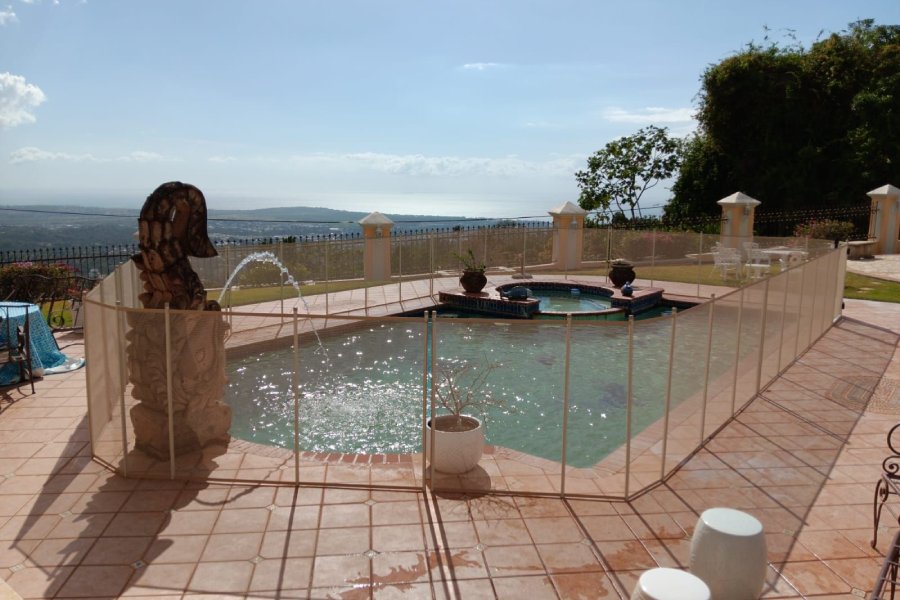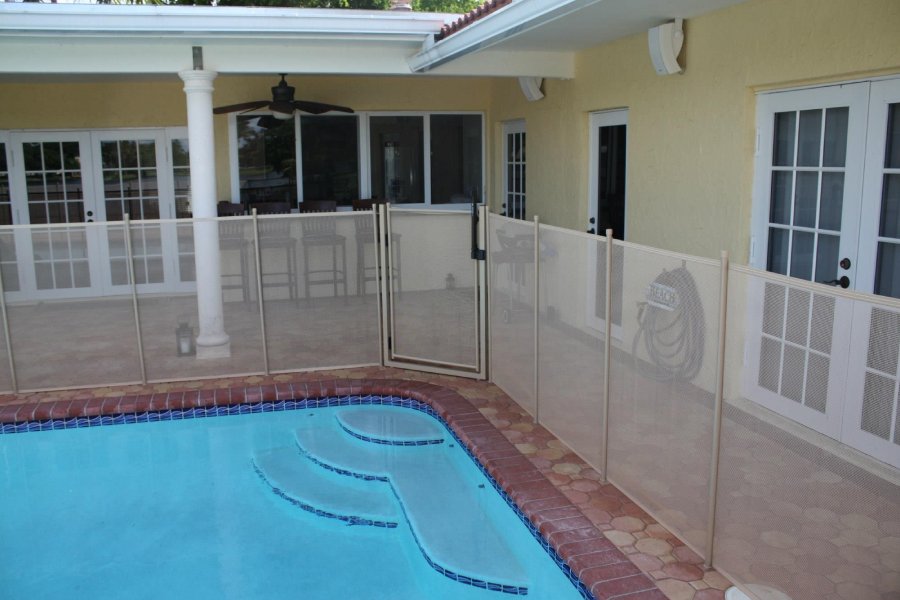Whether you are a seasoned swimmer, just dipping your toes in the pool, or watching the kids have the time of their lives around the pool area, taking the right precautions can prevent accidents and create a worry-free environment.
While pools are great for relaxation and fun, homeowners must prioritize strict pool safety tips before swimming season officially begins.

A proper pool barrier prevents a child from getting over, under, or through and prevents children from accessing the pool without an adult present. For optimal pool safety, pool fences should be at least four feet or 48 inches, completely surround the pool, and be designed without handholds or footholds to prevent climbing. While state laws vary regarding pool fence requirements, a five-foot-high fence is often recommended for added security and peace of mind.
More than that, fences should have self-closing, self-latching gates to prevent unsupervised access to the pool area. While a safety fence around pool has the added convenience of being removable, we strongly advise against it.
At PoolGuard USA, we prioritize your family’s safety! As pool safety fence manufacturers, we offer fences that are available in two standard heights– 4 and 5 feet. Each of our pool fences has child-proof safety latches made from stainless steel to withstand any conditions.
Pool covers are an excellent choice for an added layer of protection. Custom-fitted to various pool shapes and sizes, our standard pool safety covers provide unmatched safety pool covers for inground pools.
One of the most common pool safety rules is to always supervise children in, around, or near the pool. When children are present in the pool area, designate an adult as the ‘Water Watcher’. The Water Watcher’s sole focus should be on the children, keeping constant visual contact to ensure their safety.
Even a brief lapse in attention can lead to accidents, which is why a properly installed pool fence is a crucial additional safeguard. Keeping a toddler safe around pool is a task in itself, so make sure that children under the age of five are within arm’s reach to prevent near-drowning accidents. For commercial use, it is recommended to hire a qualified lifeguard.
Keep a phone nearby for emergencies, whether to call or report a missing child.
Having a CPR-verified person around the pool ensures that immediate care can be provided, reinforcing the safety measures already in place, such as pool covers or fences and constant supervision.
In situations where a child or an adult is pulled out of the water unconscious, performing CPR can help restore breathing and circulation, providing vital support until emergency medical personnel arrive at the place.
The children should immediately let an adult know if someone is having difficulty in, or around the pool area.
Besides installing a pool fence compliant with state laws to keep pools out of kids’ reach without adult supervision, it’s important to ensure pool drains are safe. All public pools must have compliant drain covers to avoid entrapment from their powerful suction.
Teach your kids never to play or swim near pool drains. Basically, teach them to stay away from pool drains at all costs. These drains can create dangerous suction strong enough to trap hair, clothing, or even jewelry, potentially preventing a child from surfacing.
Under the Virginia Graeme Baker Pool & Spa Safety Act., all public pools must meet strict safety standards, including the use of compliant drain covers, to reduce the risk of entrapment.

With child safety around pools being the top priority, every precaution taken plays a crucial role in preventing accidents.
Whether it’s the installation of pool barriers, constant supervision, or adding anti-entrapment devices, implementing these pool safety tips and continuously adapting them creates a safer swimming environment for all.
Please fill out the form below with your information. Your local dealer will be notified about your inquiry.
Please fill out the form below with your information. Your local dealer will be notified about your inquiry.